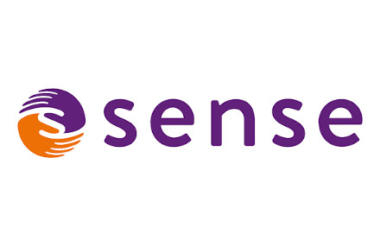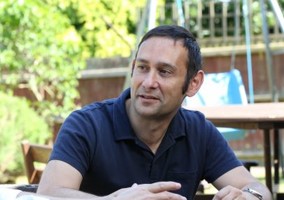Income and spending both rose at the disability charity Sense last year, despite a substantial fall in its trading activity during the Covid-19 crisis.
Sense raised £75m and spent just over £70m in the year to March 2021, according to annual accounts filed with Companies House last week.
The charity said that its financial performance was better than anticipated, and would help Sense plan for funding challenges expected in the years ahead.
Richard Kramer, chief executive of Sense, predicted in May that “it is not so much the budget this year that [will be] a problem – it is next year and the year after”.
Income, government support, trading
Sense’s income rose by around 7% in 2020-21, from £69.9m to £75.2m.
Income growth was driven by a 34% increase in donations and legacies, which rose from £10.2m in 2019-20 to £13.7m in 2020-21.
The accounts show that Sense received £5.3m in emergency government charity grants directly related to the Covid-19 crisis. It also claimed over £5m from coronavirus support programmes, including the furlough scheme and retail, leisure and hospitality grants.
Trading income more than halved, from £10.6m to £4.5m, after Sense’s 115 charity shops closed for several months under lockdown restrictions. Sense intends to go ahead with plans to increase its network of charity shops now that restrictions have lifted, the accounts said.
Spending, staff, acquisitions
Spending at Sense also rose slightly, by just over 1%, from £69.4m to £70.3m.
Total staff salaries went up from £39m to £40.8m, while the number of employees – measured as the average number of people employed each month – increased slightly to 2,555.
Spending on redundancies and termination payments doubled from £26,000 to £55,000.
The charity generated what it called “a healthy surplus” of £5m. The accounts said: “Although opportunities to invest that surplus in services during the year were limited because of national restrictions, the group has developed a three-year plan to invest in innovation and growth of service delivery.”
Sense has just under £30m in free reserves, while its pension liabilities has grown from £6.6m to £10m.
The charity also acquired the operating assets of Loughborough College from the Royal National Institute for the Blind (RNIB) for £1.3m. The building, which is still owned by RNIB, will now be a base to deliver some of Sense’s services. RNIB sold a number of assets in 2020-21 as part of a long-term financial restructure.
Chief executive: Funding ‘challenges’ ahead
Kramer said: “I’ve been humbled by the resilience and creativity of Sense staff and volunteers in the face of Covid-19.
“We have been able to keep the people we support safe and extend our reach during the pandemic. We are thankful to our incredible supporters who are emotionally invested in our cause and committed to our ongoing work.”
Kramer added that losses from shop closures “were offset” by the support available from government schemes, with stores now open again and performing better than before the pandemic.
He said: “We ended last year in a better position than we would have anticipated. We are very aware of the challenges facing Sense in terms of future funding of social care services, the need for ongoing investment in our infrastructure and the crucial part to play in expanding our digital- led programmes.
“We need to maintain our focus on fundraising in order to order to sustain our ambitious direction of travel.”
Related news










